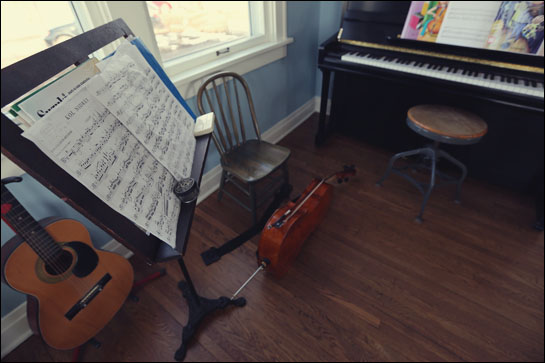
Parents stress about their kids studying all the right stuff until parents see a different path for their kids. We don’t realize that we think of well-roundedness as a way to hedge having failed to help our kids find what excites them.
Stop asking yourself asking how will my kid learn xxx?
Is your kid great at languages? Once your kid speaks five languages, no one asks you how the kid is going to learn algebra. The kids at the NYC Professional Children’s school are excused from classes for long-term Broadway runs, short term international music competitions, and anything, really, that might compromise their established gift in the arts.
I met dozens of musical kids I met who took perfunctory online courses while they were practicing eight hours a day. No one asks if the school is good. They just say, “What do you do about school?” Like it’s something to get through. This makes sense since we know the mind of a prodigy is almost always lopsided. If your brain is optimized for one thing, then it’d de-optimized for something else.
Ask yourself what is my kid great at?
Scientific American describes the phenomena where the kids who score well on IQ tests are usually not the prodigies. While not all autistic kids are prodigies, all prodigies are probably autistic. They have a rage to learn that translates to practice, and they have incredible attention to detail so that the practice is effective.
I wish I had learned a little earlier that there is no point in making a prodigy well-rounded. First of all, it’s impossible, because by definition the prodigy knows one thing better than all others: not round. But also, it’s a waste of the kid’s time, because a prodigy is for fields where there is a sequence of things to learn and people measure speed and process to determine who deserves the best coaching.
Teach your kid to tolerate the risks of working very hard.
So then well-rounded is for the land of the non-prodigy. But I wonder, why not look at every kid as very gifted. Maybe not all are prodigies because you can only become a prodigy if you are working in a field with sequential, defined learning that you can conquer by age 10. But every kid has one thing they are better at than other people. Autistic kids practice harder and longer than other kids because autism promotes singular interests. But neurotypical kids can excel in areas where autistic kids don’t stand a chance — social arenas, emotional arenas, the parts of life that are unpredictable.
Everyone can be great at something, but you can only be great at something you work hard at. So the focus of curricula should be hard work at something that comes relatively easy to you. Well rounded education does not require hard work because you don’t have to be great or stand out for anything. Being not well rounded requires spending a lot of time on a single thing. If you work hard during that time, that’s an education.
The result: you can worry a lot less
If you find yourself worrying all the time about how is your kid going to learn everything — whatever you define as everything — that’s a sign that you should really be asking yourself how is your kid going to learn what they are great at. What makes them so excited that they practice doing it more than other people practice? That’s how a kid learns to work hard at something that matters to them. And in my mind that’s the most intoxicating thing about prodigy: hard work and commitment coming from a kid when most adults never learned how to do it.


